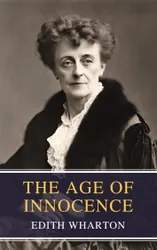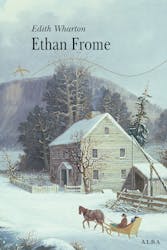In Edith Wharton's novel 'The Choice,' readers are taken on a journey through the complexities of human nature and society's expectations. The book explores themes of love, duty, and societal norms in the Gilded Age. Wharton's prose is elegant and sophisticated, capturing the essence of the time period and the inner turmoil of the characters. The narrative style is rich in detail and character development, offering a vivid portrayal of the privileged class and the struggles they face. 'The Choice' is a compelling work that delves deep into the human psyche, questioning the choices we make and the consequences that follow. Edith Wharton, known for her keen insight into social mores and class distinctions, drew inspiration from her own experiences in high society to write 'The Choice.' Her nuanced understanding of human behavior and societal expectations shines through in this novel, making it a timeless classic that continues to resonate with readers today. I highly recommend 'The Choice' to readers who enjoy thought-provoking literature that delves into the intricacies of human relationships and societal pressures. Edith Wharton's masterful storytelling and insightful commentary make this novel a must-read for anyone interested in the complexities of the human condition.

The Age of Innocence
Edith Wharton, The griffin classics
book
The Age of Innocence
Edith Wharton, HB Classics
book
The Age of Innocence
Edith Wharton
book
Ethan Frome
Edith Wharton
book
The House of Mirth
Edith Wharton
book
The Age of Innocence : A Season of Secrets: Unveiling Innocence and Experience in Edith Wharton's Masterpiece
Edith Wharton, MyBooks Classics
book
The Age of Innocence
Edith Wharton, Bluefire Books
book
The Age of Innocence : Discover Love & Society in Wharton's Classic
Edith Wharton, Redhouse
book
The Age of Innocence : Unveiling Innocence: A Timeless Journey Through Edith Wharton's Masterpiece
Edith Wharton, Moon Classics
book
Library of Masterpieces - 100 Books to Read in a Lifetime
illiam Shakespeare, Fyodor Dostoevsky, Louisa May Alcott, Miguel de Cervantes, John Milton, Jane Austen, Charlotte Brontë, Emily Brontë, Anne Brontë, William Makepeace Thackeray, George Eliot, Charles Dickens, Thomas Hardy, Jonathan Swift, Daniel Defoe, Joseph Conrad, Robert Louis Stevenson, Mary Shelley, Bram Stoker, Arthur Conan Doyle, Wilkie Collins, Oscar Wilde, T. S. Eliot, D. H. Lawrence, James Joyce, Virginia Woolf, E. M. Forster, Evelyn Waugh, Aldous Huxley, George Orwell, H. G. Wells, Lewis Carroll, Frances Hodgson Burnett, Kenneth Grahame, C. S. Lewis, Malcolm Lowry, Ford Madox Ford, Mark Twain, Jack London, Herman Melville, Ernest Hemingway, Jack Kerouac, Nathaniel Hawthorne, Edith Wharton, Walt Whitman, Kate Chopin, Harriet Beecher Stowe, Neale Hurston, Richard Wright, Raymond Chandler, Dashiell Hammett, F. Scott Fitzgerald, John Steinbeck, William Faulkner, Margaret Mitchell, Sylvia Plath, Carson McCullers, L. Frank Baum, L. M. Montgomery, Leo Tolstoy, Ivan Turgenev, Nikolai Gogol, Johann Wolfgang von Goethe, Friedrich Nietzsche, Thomas Mann, Franz Kafka, Erich Maria Remarque, Albert Camus, Marcel Proust, Jules Verne, Victor Hugo, Gustave Flaubert, Stendhal, Alexandre Dumas, Henrik Ibsen, Rudyard Kipling, Homer, Sophocles, Virgil, Laozi, Sun Tzu, Plato, Marcus Aurelius, Dante Alighieri, Niccolò Machiavelli
book
Ethan Frome
Edith Wharton
audiobookbook
The Children
Edith Wharton
book
